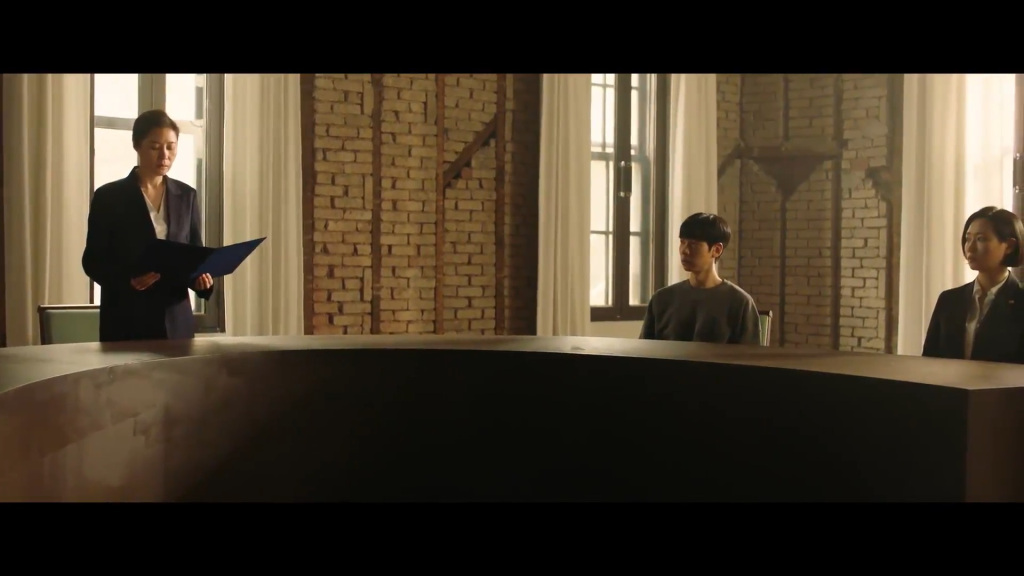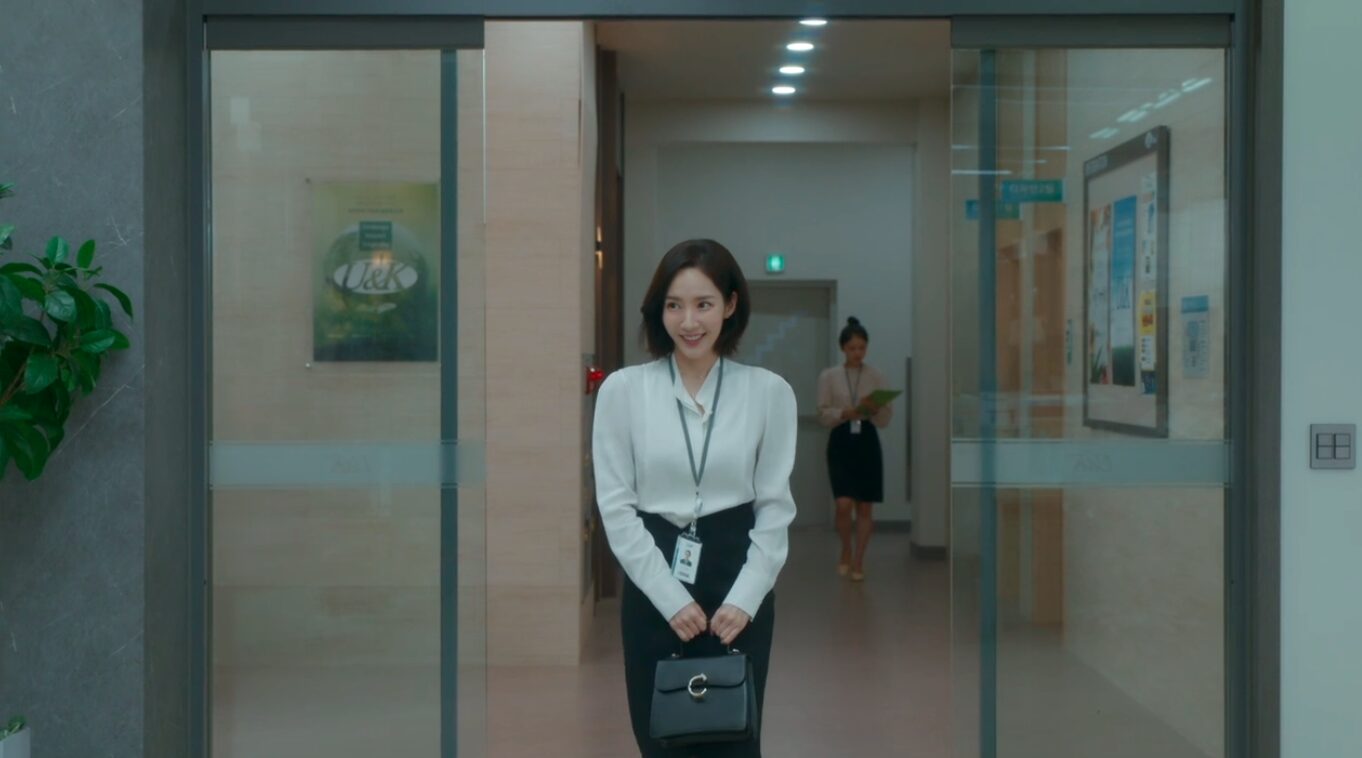SF8 finishes its anthology with a darkly disquieting piece about parents, children, suicide and dealing with death
I guess I should have reacted the way most of the other girls were, but I couldn’t get myself to react. I felt very still and very empty, the way the eye of a tornado must feel, moving dully along in the middle of the surrounding hullabaloo.
Sylvia Plath, The Bell Jar
As I attempt to write my final piece on SF8 without using the word ‘enigmatic’ yet again, I have to concede that it is in fact an ambiguous piece. Enigmatic even. There’s simply no getting around it. Empty Body is enigmatic and it’s the only word I can use no matter how repetitive it makes these reviews.
The ambiguity will either confuse a viewer or work for them. But while parts of Empty Body are deeply puzzling and elude me even now, the episode as a whole has a strong coherence.
While I doubt there is a perfect metaphor for depression, SF8’s Empty Body has come close.

The Plot
When Ga Hye-ra’s (Moon So-ri) son dies in a tragic accident that leaves most of his body destroyed, she signs up for a pilot programme to create cyborgs by merging human brains with androids. Her son Young-in (Jang Yoo-sang) now lives safely encased in a robot body designed to nurture the last of his brain and allow him to live again.
However, Hye-ra has come slowly to believe that when she looks at the android A-796 – one that is designed and programmed to look and act like her son – that it isn’t her son looking back at her anymore. It is nothing but an empty shell.

A series of tests proves that she’s right. The android Young-in has secretly shut off life support to the brain matter and erased all the files containing the personality, killing the last part of the human Young-in. As the episode begins, he’s being prosecuted for murder. He has been impersonating Hye-ra’s son for months.
One day I realised that my child’s eyes were empty. I had been wasting my time with a machine.
Go Hye-ra
At this point you would expect Empty Body to explore whether an android could be prosecuted for murder under these circumstances. But Empty Body is not concerned so much with the what or the how as with the emotions around a child’s death. Especially if that child chose to die.
Young-in’s car accident, it turns out, was no accident at all. Her son – despite her declaring in an early interview with police that he was ‘completely normal’ the day before – did not want to live. Then, as now, he found a way to die despite her best efforts to force him to live.
And yet Young-in has a child still alive. A former cyborg, now android. One who wants to live. But one who is different from how she envisioned her child to be.
The Ghost in the Machine
The skill of bringing to screen a story like Empty Body is to commit to minimalism. And in this the production is well executed. There is a quiet, sparse stillness to the whole thing, like a void of light and sound. Like a vacuum, an absence. An emptiness.
Characters are filmed in muted whites and greys, delivering simple dialogue in close-up while the soundtrack screams in its absence and Hye-ra wanders around her empty house believing her son has just left the room, just gone out the front door, is just out of view in the forest.

Is Young-in the empty vessel or is it Hye-ra herself; still in denial about her son’s death and unable to come to terms with her own loss? Still unable to come to terms with the fact that her son did not want to live, either before or after his resurrection.
Do you not see me?
Android Young-in
Look at me, I’m right here!
An extension of myself
It’s a shame that Empty Body never deals with the legalities or ethics of an android killing its brain matter. There’s a lot to unpack here around the supposed crime (Is this really murder? What constitutes a person? Does an android have the right to make decisions around its own bodily autonomy? Is it simply a host or an individual in its own right?).
Empty Body isn’t interested in asking many of these questions. And yet, while discussions of humanity in the age of technology seems to be absent from the episode, bodily autonomy is not. The show just approaches it from a slightly different angle. Instead of asking whether an android has rights separate from the lifeform inside, it instead asks where a parent ends and a child begins.

To what extent and at what point do parents allow their children the autonomy of adulthood? The journey from deciding every single thing for your child to accepting their adult right to make their own decisions is a difficult one. Does Hye-ra need to accept her son’s right to decide what he does with his life – even if that decision is dying?
Ultimately, the emptiness she sees looking into Young-in eyes may not be the soulless shell of the android but simply her son; depressed and miserable and forced to live more of a life he desperately tried to shed.
When Hye-ra says that her son has become a different person, one who seems empty, one that doesn’t resemble the son she knew, it sounds as though she’s speaking of a child with depression. One who has grown to be different from the image in her head.

As the episode ends and Hye-ra decides to drop the charges and bring home the android that looks exactly like her son, she has a meeting with the engineers to change his face and wipe his memories. A fresh start, a blank slate. An opportunity for her to start from scratch. An arbitrary decision of someone who owns another being and has control over every aspect of their life.
We’ll be happy if you just let me change you, she is saying, if you let me get rid of the things that are making us unhappy.
“I’m the Mum and I have ownership over that face,” she tells me. “You can’t claim that it’s yours.”
“It’s my face,” he argues. “Those memories and pain all belong to me. I don’t want to do that just so you’ll accept me.”
And in the end, that’s what Empty Body means, at least to me. It means a parent accepting a child as they are and allowing them to be how they are. Even if that means they have problems the parent can no longer fix.
Hye-ra may look at her son and see a different person looking back at her but that’s what growing up is. And forcing her child to go around in the world pretending to be somebody he’s not just to be accepted by her is a soul-destroying thing.
In this case, literally.




Thanks for the recap , I loved this episode a lot.
It was a great one to end this series .